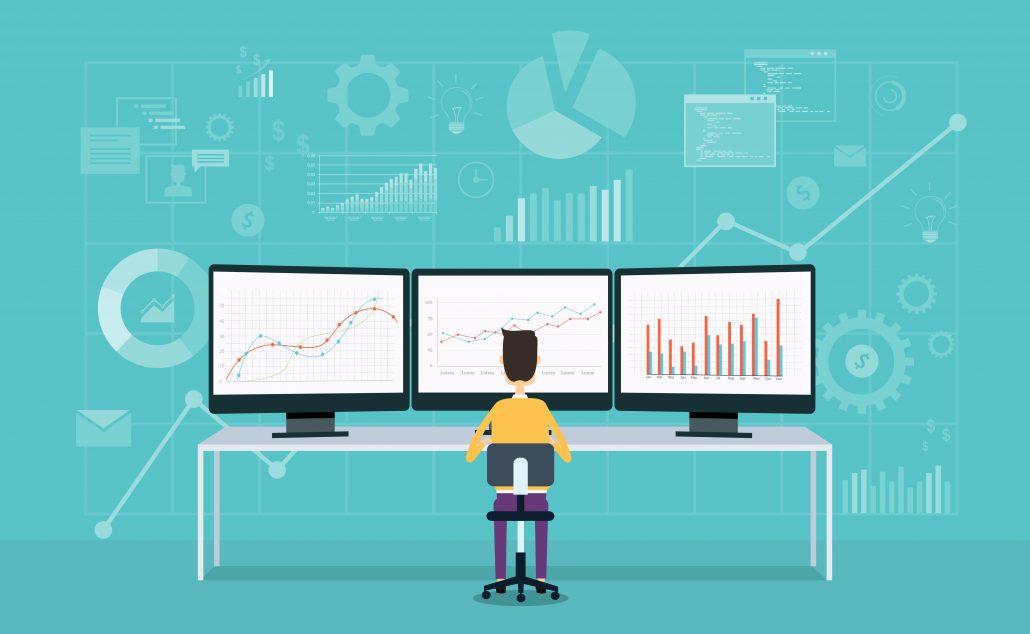Q&A with David Creelman on Data Analytics and HR
Following the success of the event “Data Analytics and HR”, David Creelman, CEO of Creelman Research was gracious to sit-down with us and break down what he knows about the subject. Here is our Q&A with him:
Q: How did you get into people analytics?
Creelman: I’ve watched the field evolve since 1990 when I worked for the Hay Group helping them develop predictive analytics for job evaluation (yes, the field really is that old). My more recent involvement began in 2012 when I was invited by the UK-based think tank CRF to go to Carnegie-Mellon to meet Dr. Denise Rousseau. She’s the world’s leading expert on evidence-based management (EBM) and people analytics is really a subset of EBM. Originally, I was asked to write a paper on the topic but I decided the leaders didn’t need another paper, they needed people to help them implement analytics. That’s what got me actively working with practitioners on analytics.
Q: What is so controversial about people analytics? Why has it become a hot topic?
Creelman: It’s controversial because it’s often presented as a kind of black magic that can do astonishing things in ways we don’t really understand. People sit in a conference, hear some great stories, but leave with no real clue how they’d do analytics in their own organization. So, there is a tension between the hype and the reality.
It’s a hot topic because the availability of data and the ability to process that data is greater than ever before. Of course, it’s also become a hot topic because vendors think they can make a lot of money selling it—which is fair enough when they are able to deliver results.
Q: What are the three most important benefits of having data analytics in HR?
Creelman: The single most important benefit is that having data is essential if HR is to play the role of a credible activist. It underlies the ongoing evolution of HR into a strategic function.
The second benefit is that it leads to better decisions. For example, if we have data showing that an employee recognition program drives customer loyalty then we’ll invest in it; without data, we’d just be guessing and potentially wouldn’t continue the recognition program.
The third most important benefit is that it positions HR as thinkers not just doers. Too often HR departments just do what the business asks, even if it’s not the best thing to do. With a credible analytics capability HR can push back and say “Let me get some data on the best course of action, and then we can decide together what to do.”
Q: What industries benefit most in data analytics in HR?
Creelman: The easiest place to deploy analytics is in companies with high population jobs; for example, a grocery chain with lots of clerks. It is also excellent in companies that have many similar units, for example a café chain with hundreds of cafes. However, even small firms benefit form analytics, especially if you follow Dr. Rousseau lead and frame the mission broadly as evidence-based management. We always have to make decisions, and they should be based on the best available evidence, not just on a fad, an opinion, or what someone did in their previous organization.
Q: If I want to invest in data analytics – 1) People who can analyze data and 2) The technology – how much would it cost me? Is it worth investing?
Creelman: It’s easy to spend millions on analytics and get very little return. For example, you can hire expensive data scientists who analyse heaps of data and find out something you already know. You can invest heavily in data cleaning and technology to produce dashboards only to find that no one uses them. HR really needs to be cautious because so many things can go wrong.
The trick is to clearly identify problems of a manageable size and start doing some basic analysis without a big investment in new resources. For example, you might have a problem with excessively high turnover of seasonal staff. Get some of your analytically minded staff to look for evidence of the cause and then for the best ways to address the cause. Over time you’ll build up an internal understanding of how to use analytics and then you can make bigger investments with confidence. Walk before you run.
Q: A lot of people are still skeptical about data-driven HR. How could data work for me and how could it work against me? Cite some examples.
Creelman: It can work for you by building credibility. For example, if you are helping the organization decide where to relocate, but don’t have any data on how the move will affect commute times, then you won’t be credible.
At the same time, poor data can hurt you; one client had a quirk in the data so that some employees showed up as having more than 100 years of service. Erroneous data can make HR look silly.
Q: What’s your advice for companies who are not using data analytics yet? What can they do to get started?
Creelman: To me it’s inconceivable that a company wouldn’t be making a start on data analytics, it’s an essential tool. The single easiest way to get started is to find a business savvy HR professional with some quantitative skills (the sort of thing you’d expect in an MBA) and give them some time to work with other team members on projects that would benefit from analytics. For example, this “analytics advisor” might take on a project with recruiting to get data on the effectiveness of interviewing; later they might work with a training manager to assess the effectiveness of e-learning vs workshops. It need not be a full-time job, it need not be a new hire. It’s just giving someone with the right basic skills the time to work on some projects. One often overlooked step it so, make sure they know how to document their successes and move forward from there.





Leave a Reply
Want to join the discussion?Feel free to contribute!